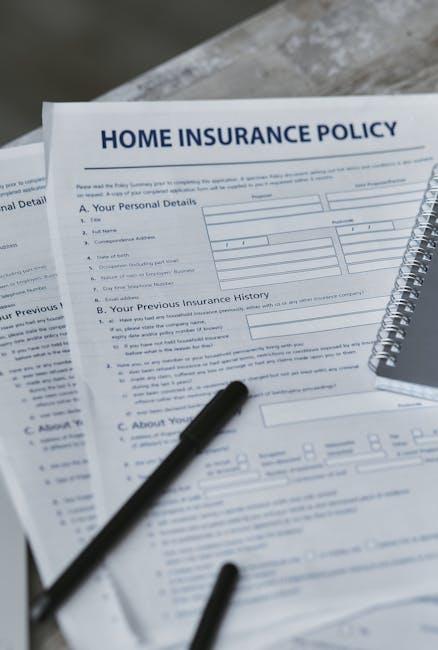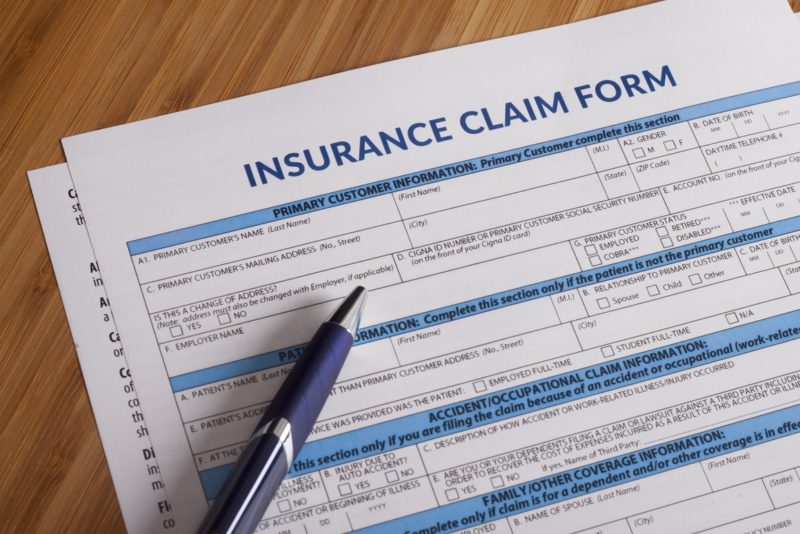Facing a denial on your insurance claim due to technical reasons can be both frustrating and bewildering. Whether it’s a missed deadline, incomplete documentation, or a misinterpretation of policy details, these technicalities can obstruct your path to rightful compensation. In this guide, we will navigate the complexities of insurance claims, equipping you with a step-by-step approach to address and potentially overturn a denial. By understanding the common pitfalls and learning how to effectively communicate with your insurer, you can strengthen your position and ensure that your claim receives the fair consideration it deserves. Let’s delve into the essential actions you need to take to reclaim control and advocate for your rightful benefits.
Understanding Common Technical Denials and Their Implications
Technical denials in insurance claims can be particularly frustrating because they often stem from issues unrelated to the validity of the claim itself. These denials are typically due to administrative errors, missing information, or non-compliance with policy requirements. Understanding these common denials is crucial to successfully navigating the claims process. Common technical reasons for denial may include:
- Incomplete or incorrect documentation: Missing signatures, incorrect codes, or incomplete forms can lead to an automatic denial.
- Timely filing issues: Claims not submitted within the required time frame specified by the insurance policy.
- Eligibility discrepancies: Incorrect or outdated information regarding the policyholder’s coverage or benefits.
Each of these technical issues can have significant implications, potentially delaying reimbursement and causing financial strain. Addressing these denials requires meticulous attention to detail and a proactive approach. Start by reviewing the denial notice carefully to identify the exact reason for denial. Communicate promptly with your insurance provider to rectify errors, and consider resubmitting the claim with the necessary corrections. If necessary, seek assistance from a professional familiar with insurance claims to ensure all requirements are met efficiently.

Gathering Essential Documentation to Strengthen Your Appeal
When facing a denial of your insurance claim due to technical reasons, one of the most critical steps is to gather all necessary documentation that can support your appeal. This process begins with obtaining a detailed copy of the denial letter. Review the letter carefully to understand the specific technical reasons cited for the denial. This document serves as the foundation for your appeal, providing insights into what needs to be addressed.
Next, compile a comprehensive file that includes:
- Policy Documents: Ensure you have the latest version of your insurance policy, as well as any amendments or endorsements.
- Communication Records: Gather all emails, letters, and notes from phone calls with your insurance provider to trace the history of your claim.
- Evidence of Claim: Include photographs, receipts, and any other evidence that substantiates the claim you submitted.
- Expert Opinions: If applicable, obtain statements or reports from professionals or experts that support the validity of your claim.
Having this documentation organized and readily available not only strengthens your case but also demonstrates your preparedness and commitment to resolving the issue. Remember, the more thorough your documentation, the more persuasive your appeal will be.

Crafting a Persuasive Appeal Letter to Address Technical Errors
When faced with a denied insurance claim due to technical errors, crafting a persuasive appeal letter is crucial. Start by clearly identifying the specific technical error cited by the insurer. Whether it’s a clerical mistake or a misunderstanding of the policy details, address the issue head-on with clarity and precision. Use a professional tone throughout your letter, maintaining respect and composure, even if the denial feels unjust. Remember, your goal is to rectify the error, not to vent frustrations.
- Gather Evidence: Collect all relevant documents, such as the original claim form, policy details, and any correspondence with the insurance company. Ensure you have the correct information that supports your case.
- Be Specific: Reference policy numbers, dates, and any other pertinent details that clearly outline the technical error.
- Use Clear Language: Avoid jargon or overly complex language. Your aim is to make it as easy as possible for the reviewer to understand and rectify the mistake.
- Request a Review: Politely ask for a reconsideration of your claim in light of the evidence and explanations provided.
ensure your contact information is up-to-date, inviting further communication if needed. By approaching the appeal with meticulous attention to detail and a respectful tone, you significantly increase your chances of overturning the denial.

Leveraging Professional Assistance to Navigate Complex Insurance Disputes
When your insurance claim is denied due to technicalities, seeking the guidance of a seasoned professional can be invaluable. Insurance claims adjusters and legal experts specialize in dissecting the complex language and fine print that often accompany insurance policies. These professionals can provide insights into the reasons behind your denial and offer strategic advice on how to effectively appeal the decision. They understand the nuances of insurance jargon and can identify any potential oversights or errors in your claim submission.
Working with a professional can also help you avoid common pitfalls and streamline the appeals process. Consider the following benefits:
- Expert Analysis: Professionals can review your policy and claim details to ensure all technical requirements are met.
- Strategic Communication: They can assist in drafting persuasive letters and communicating with the insurance company on your behalf.
- Appeal Preparation: Guidance in gathering additional evidence or documentation that may strengthen your case.
- Time Efficiency: Leveraging their expertise can save you time and reduce stress during what can be a lengthy process.
By enlisting professional assistance, you position yourself with a stronger chance of overturning the denial and securing the coverage you deserve.

